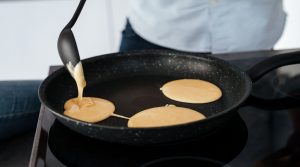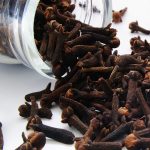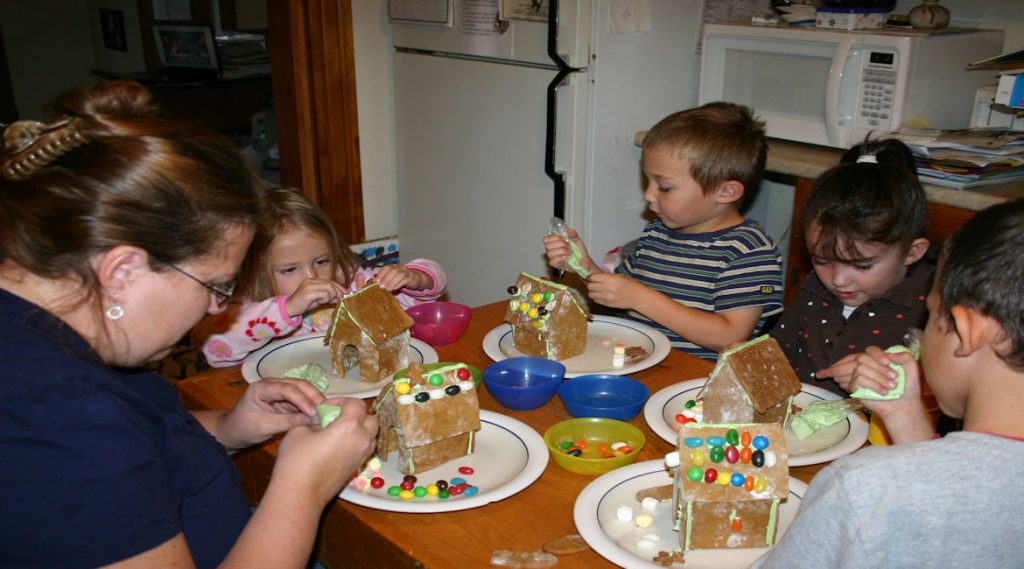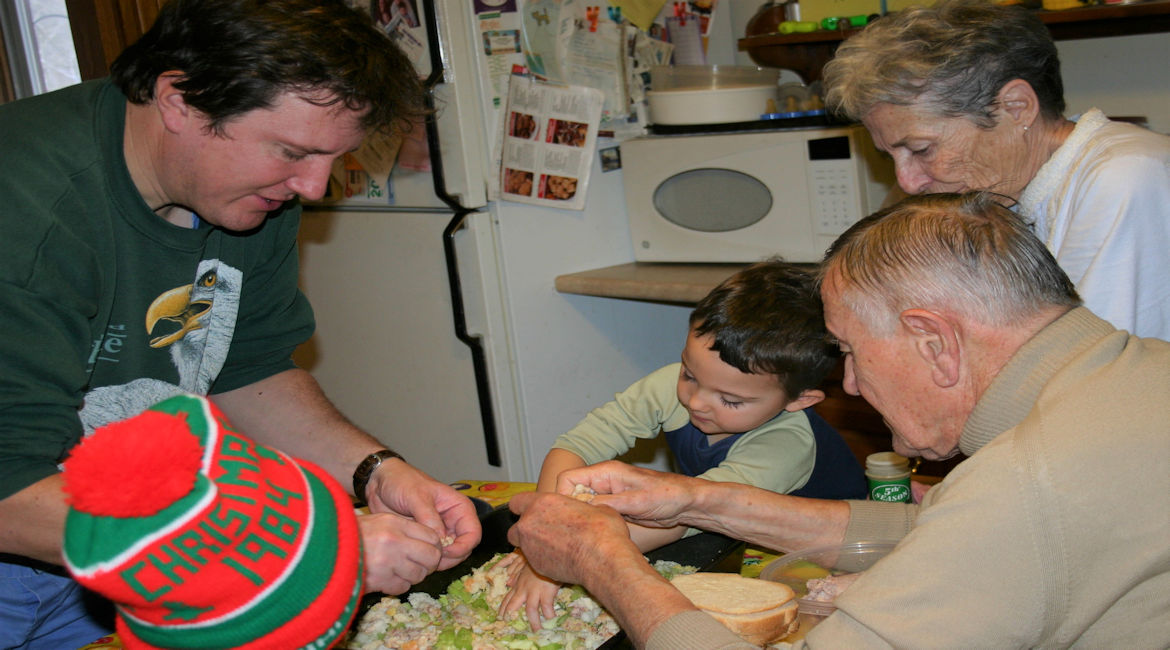There’s no place to multitask quite like in the kitchen. One job can cover a multitude of subjects.
- Science – experiment away with heat, chemistry, pressure, steam…
- Math – measuring in baking and cooking
- Home economics – making food
- Life skills – cooking is NOT old fashioned, and will, in fact, never actually go out of fashion! In fact, preparing a good meal is very impressive.
- Biology – there are lots of organisms living in a kitchen, hence the need to clean up properly, plus, some of them are rather tasty.
- Language arts – following a recipe takes comprehension and attention to following of instructions.
- Art – dishes of food can become works of art or mediums with which to create, so play with your food!
- Socialization – time spent in the kitchen creating favorite foods are some of the fondest memories in life.
It can even stretch to history and geography if you cook dishes from around the world or different time periods. Perhaps you just have to make great-grandmother’s recipe which leads to the study of her life and times, as well as where she grew up. Or maybe you find a recipe to Martha Washington’s ham, for which she was famous, and you’re studying the American Revolutionary War. The addition of the kitchen into your curriculum adds SO much scope and creativity, both your school day and your child’s life. Remember that as a homeschooler, you are preparing your child for adulthood. You have the opportunity to kit them out with the tools they will need to find their way and thrive when they leave your home.
My favorite example of math in the kitchen is in my post on math. One morning I walked into the kitchen and told my (then) nine or ten-year-old that I wanted a double batch of pancakes from my Betty Crocker cookbook.
Firstly, he had to figure out where to look to find the recipe. He then had to follow the instructions, doubling the ingredients in his head, and provide breakfast for his family. He did great. Right up until the time that he thought a double of three teaspoons was six tablespoons, and didn’t pay attention to the details, so missing that the recipe called for baking powder and not baking soda.
 The little lad fired up the griddle and produced beautiful pancakes. A double batch worth of beautiful pancakes. As was our habit, we put maple syrup on them. And then it happened… we bit into them. The mistake was instantly evident. Instead of doubling the wrong leavening ingredient, he had sixtupled it. His math was off, as three teaspoons make one tablespoon so trebling that does not equal six tablespoons. His reading skills were a little awry because he read baking and assumed it meant soda rather than actually reading it to find it was powder and not soda. Science-wise, he did learn that there is a difference between baking soda and baking powder. (Frankly, the difference is cream of tartar, as baking soda plus cream of tartar makes baking powder.)
The little lad fired up the griddle and produced beautiful pancakes. A double batch worth of beautiful pancakes. As was our habit, we put maple syrup on them. And then it happened… we bit into them. The mistake was instantly evident. Instead of doubling the wrong leavening ingredient, he had sixtupled it. His math was off, as three teaspoons make one tablespoon so trebling that does not equal six tablespoons. His reading skills were a little awry because he read baking and assumed it meant soda rather than actually reading it to find it was powder and not soda. Science-wise, he did learn that there is a difference between baking soda and baking powder. (Frankly, the difference is cream of tartar, as baking soda plus cream of tartar makes baking powder.)
The next morning, I handed my son my Betty Crocker cookbook and said, “Joe, I want you to make a double batch of pancakes.” Life skills kicked in. Perhaps, being an avid reader, he remembered what he had read twenty-four hours previously. Could it have been that the failed science opportunity was still fresh in his mind? Maybe it was simply that we were running out of maple syrup as we’d used so much already? Either way, we had a double batch of beautiful, perfect pancakes for breakfast that day.
While that is my favorite in-the-kitchen story, many others have taken place. We’ve had all hands on deck with three generations of our family mixing Thanksgiving stuffing ingredients. We’ve made build-your-own scones and fill-your-own cinnamon roll dough, cookies, muffins, breakfasts. Sometimes, people need a little nudge in the kitchen. My outdoor son, who would rather be working with his hands than many other things and who has told me that he doesn’t like to cook and would rather eat cereal for breakfast, came in one day while I was making pancakes and told me they needed to be flipped. I was busy doing something else and used the opportunity to inform him that he could flip them, while making what I was doing take longer than it needed to give him the time to complete our breakfast that morning. Without recognizing that he was cooking, he finished making the rest of the pancakes. I didn’t tell him that he was cooking. I simply seek to help cultivate in him a love of cooking so he can gain confidence in the kitchen and find a niche in it, and develop a sense of tastes and what things go together.
 Speaking of tastes and flavors that mix well, something I do in the kitchen as part of training my children, is to open bottles of herbs and spices as we use them and let the children smell their aroma before asking them to identify them. I want them to know what things smell like so they can begin to put spices together with complimentary spices in their experimenting.
Speaking of tastes and flavors that mix well, something I do in the kitchen as part of training my children, is to open bottles of herbs and spices as we use them and let the children smell their aroma before asking them to identify them. I want them to know what things smell like so they can begin to put spices together with complimentary spices in their experimenting.
A subject that you can’t get or give any academic credit for but which is invaluable and can’t be overstated, is simply the time spent together in the kitchen. It may not show up on paper but is so abundantly worthwhile in your relationship with your child. You have the opportunity to create something tasty while spending time together, and then eat the product of your creation. All that is accomplished while teaching your child math, life skills, reading and more!
Start Somewhere. You never know where it will lead!





